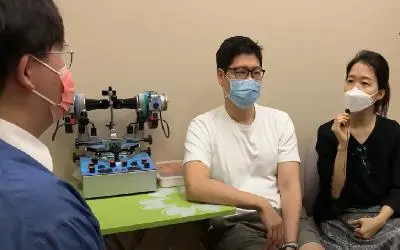Q. WHY DO YOU CALL YOURSELVES BEHAVIOURAL OPTOMETRISTS?
Vision issues can lead to eye fatigue and headaches while reading, impacting focus and understanding, often causing a child to evade reading. This serves as a single instance where vision impacts behavior.
Q. WHY DO YOU CALL YOURSELVES DEVELOPMENTAL OPTOMETRISTS?
As our vision progresses, we acquire skills in focusing, employing eye movements, coordinating eye and hand movements, and comprehending visual information. Occasionally, these abilities may not develop as anticipated, but they can be evaluated and addressed through vision therapy.



